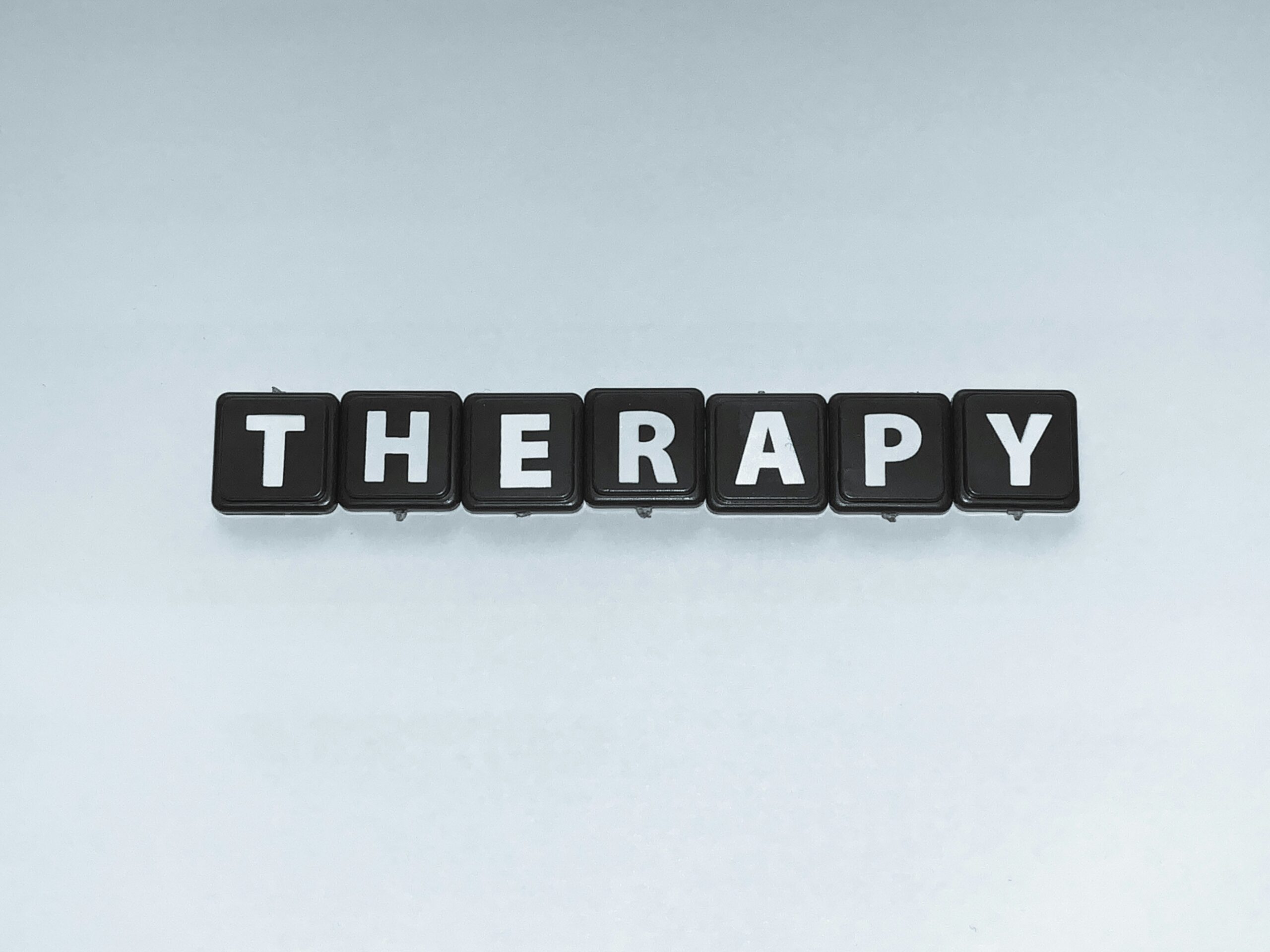by Anna Stewart LMSW

Eating disorders are intricate conditions that intertwine medical and mental health challenges. It is vital to acknowledge that these disorders are not a choice; they are serious illnesses that demand our compassion and informed intervention. For too long, treatment has focused predominantly on physical health. However, groundbreaking insights now reveal that integrating mental health services into treatment yields profound and lasting improvements in
recovery. Therapy is a fundamental pillar in the battle against eating disorders. Engaging in evidence-based psychological therapies has demonstrated remarkable efficacy in alleviating distress and reducing symptoms. These interventions are most powerful when incorporated into a comprehensive, multidisciplinary approach that combines medical care, nutrition guidance, and robust support systems. Involving family and caregivers in treatment enhances effectiveness, reinforcing the critical role of a nurturing support network.

Embarking on therapy can be a daunting experience, especially amid uncertainty or prior negative experiences. It’s perfectly normal to feel apprehensive navigating the emotional complexities that arise. To empower yourself, consider reaching out to your therapist before your
session to discuss your concerns or questions. This proactive engagement sets the stage for a fruitful dialogue, allowing you and your therapist to prepare for meaningful and constructive discussions. As therapists, our primary goal is to create a safe, nurturing environment where transformative change can flourish. Recognizing that change is often a gradual process is essential for building a strong therapeutic alliance. Each person’s path to recovery is distinct; while some may grapple with resistance to change, others may eagerly embrace the therapeutic process. A skilled therapist keenly observes these dynamics, assessing progress within therapy sessions and in daily life. The heart of effective therapy lies in genuine empathy and
understanding. A proficient therapist not only possesses a deep understanding of psychological principles but also an awareness of the complexities surrounding eating disorders. Collaborating with registered dietitians ensures a holistic approach that addresses every facet of your health—physical, emotional, and psychological.

Remember, the journey toward lasting change begins with you. Recovery requires dedication and effort, but having a supportive therapist can catalyze your growth. Embrace the process and extend to yourself the grace, patience, and empathy you deserve. Recovery may be filled with ups and downs; some days will be challenging, while others will shine brightly. Each step forward, regardless of size, propels you closer to your goals. At Unbound Recovery, we believe wholeheartedly in your potential for transformation. You matter deeply, and your presence enriches the world around you. As you strive to become the best version of yourself, know that you are not alone. Your journey not only benefits you but also those who care about you. When you're ready to embrace change, we would be honored to guide you on your path to a healthier, happier life.
References
Anna Stewart , LMSW has an empathetic, compassionate counseling style and passion for serving those with eating disorders and body image issues. She is currently accepting new clients in Topeka and Manhattan.
Unbound Recovery is dedicated and committed to providing the best eating disorder treatment care to Kansas Residents. If you would like to refer clients to us, please fax referral information to: 785-534-5014. We will contact clients and get them scheduled for services. Our providers will provide updates to you on a regular basis.

by Taylor Curtright, M.Ed., LPC on February 20th, 2025
Unbound Recovery is excited to announce that our 2nd location is now open! Our outpatient clinic in Topeka, KS is currently accepting clients who struggle with eating disorders. We have both therapy and nutrition services available. Services include the following:
Our Manhattan office is also accepting new clients for both mental health therapy and nutrition counseling services! Both locations offer in-person and telehealth services.
Both locations accept most major insurances. We also have a same day cash rate.
Topeka Location Address and Contact Information:
3601 SW 29th Street, Suite 128 & 213
Topeka, KS 66614
785-510-3008
Manhattan Location address and Contact Information:
1201 Poyntz Avenue
Manhattan, KS 66502
785-510-3008
Eating disorders are serious, life-threatening psychiatric illnesses in which individuals experience disturbances in their eating behaviors, related thoughts, and emotions. Approximately 10,200 deaths per year, or one death every 52 minutes, are the direct result of an eating disorder; with anorexia nervosa having the highest case mortality rate and second-highest crude mortality rate of any mental illness (1).
Contrary to some beliefs, eating disorders are not a choice; they are complex medical and psychiatric illnesses, in which biological, environmental, and social elements play a role. Eating disorders commonly co-occur with other mental health conditions (2), as over 70% of people who struggle with an eating disorder, also struggle with other conditions (1) such as depression, anxiety, and obsessive compulsive disorder, among others (2). They also have life-threatening medical complications.
Research shows that the earlier the treatment, the better the outcomes for the treatment of eating disorders. Many studies also suggest that only about ⅓ of eating disorders were detected by healthcare providers (3). Screening can be an effective method for early detection of eating disorders. The SCOFF Questionnaire is a five-question screening tool used to clarify suspicion that an eating disorder may exist (4). It can be delivered verbally or in written form.
An answer of ‘yes’ to two or more questions warrants further questioning and more comprehensive assessment.
Two additional questions have been shown to indicate a high sensitivity and specificity for bulimia nervosa. These questions indicate a need for further questioning and discussion.
Eating disorders present with many medical complications and can be unique to the eating disorder behaviors that the individual participates in, including restrictive behaviors and/or compensatory behaviors (laxatives, diuretics, self-induced vomiting, over-exercise).
| Restrictive Behaviors Complications | Compensatory Behaviors Complications |
| -Gastrointestinal issues -Gastroparesis -Constipation -Stomach Pain -Bloating -GERD -Bone Density Loss -Hypothalamic hypogonadism -Hypoglycemia and sudden cardiac death -Bone marrow failure -Liver abnormalities -Skin, hair, nail abnormalities -Other complications associated with malnutrition and energy deficiency -Starved thinking (rigid, fearful, obsessive thoughts) | -Abrupt electrolyte changes and cardiac arrest -Dental damage -Barrett’s esophagus and GERD -Rumination -Gastritis, ulcers, upper GI tract bleeding, esophageal tears -Parotid hypertrophy -Dehydration -Pancreatitis and kidney stones (laxative abuse) -Kidney failure (diuretic abuse) -Pseudo-Bartter Syndrome and rebound edema (when purging stops) -Other complications associated with energy deficiency and malnutrition |
Because eating disorders present with medical, nutritional, and psychological complications, a collaborative, multi-disciplinary team approach is necessary in the treatment of eating disorders. Common providers involved in the care of an individual include:
Unbound Recovery is an outpatient clinic in Manhattan and Topeka, KS that specializes in the treatment of individuals struggling with eating disorders, disordered eating, chronic dieting, body image concerns, and coexisting mental health conditions. Unbound Recovery has both mental health therapists and dietitians who collaborate with outside providers to establish a team approach for the treatment of eating disorders. Our director, Dr. Amber Howells is a Certified Eating Disorder Specialist. Our other providers have received specialized training in eating disorders and are currently working towards becoming a Certified Eating Disorder Specialist (CEDS).
Medical Management Recommendations:
Our providers will often make medical management recommendations to primary care providers to ensure the safety of treatment in the outpatient setting. Recommendations are based on evidence-based resources and the severity of the eating disorder symptoms and behaviors. These recommendations often include the following:
References
Unbound Recovery is dedicated and committed to providing the best eating disorder treatment care to Kansas Residents. If you would like to refer clients to us, please fax referral information to: 785-534-5014. We will contact clients and get them scheduled for services. Our providers will provide updates to you on a regular basis.

Please welcome one of our newest team members at Unbound Recovery, Hannah Coates, Therapy Intern. Hannah is currently working on her M.Ed. in Clinical Mental Health Counseling from Wichita State University and has her BS in psychology from Kansas State University. Her background as both a collegiate athlete and a first responder, bring a unique perspective to counseling and have fostered a deep interest and growing expertise in areas such as trauma counseling, anxiety, depression, imposter syndrome, high-functioning neurodivergence, and the complexities of grief, loss, and death. Hannah is dedicated to cultivating a safe and welcoming space where clients feel supported and heard. She uses empathy and understanding to connect with each client’s unique experiences, fostering a nonjudgmental space that encourages open communication and builds trust. Taking an integrative approach, she works with each individual client to establish a treatment plan specific to their needs and goals. Hannah is passionate about empowering her clients to navigate life’s challenges, and strives to use compassion and understanding to let her clients know they are not alone in their journey. Hannah is currently accepting new therapy clients at the Manhattan location for a reduced rate!
Please welcome our new team member at Unbound Recovery, Sarah Hoing, RDN. We are thrilled to have Sarah joining our team with her experience and passion working with women and children. Sarah is excited about specializing in providing excellent treatment to those who are struggling with eating disorders and body image issues. She will start seeing nutrition clients at both the Manhattan and Topeka locations in March!
Please welcome another new team member at Unbound Recovery, Anna Stewart , LMSW. We are thrilled to have Anna joining our team with her empathetic, compassionate counseling style and passion for serving those with eating disorders and body image issues. She will start seeing therapy clients at both the Manhattan and Topeka locations in March!

Unbound Recovery is excited to announce that we are opening a 2nd location! Our outpatient clinic in Topeka, KS will start seeing clients who struggle with eating disorders on Sept. 9th, 2024. We will have both therapy and nutrition services available. Services include the following:
Our Manhattan office is also accepting new clients for both mental health therapy and nutrition counseling services! Both locations offer in-person and telehealth services.
Both Locations accept most major insurances. We also have a same day cash rate.
Topeka Location Address and Contact Information:
3601 Southwest Plaza, Suite 128
Topeka, KS 66614
785-510-3008
info@unboundmhk.com
Manhattan Location address and Contact Information:
1201 Poyntz Avenue
Manhattan, KS 66502
785-510-3008
info@unboundmhk.com

Eating disorders are serious, life-threatening psychiatric illnesses in which individuals experience disturbances in their eating behaviors, related thoughts, and emotions. Eating Disorders impact both mental and physical health and require a collaborative and specialized treatment approach. Unbound Recovery’s providers are passionate about the holistic care of clients struggling with eating disorders, disordered eating, chronic dieting, and body image concerns. Not only are our providers credentialed and licensed in their respective fields, all of our mental health and nutrition providers are specializing in eating disorder care and are working towards their Certified Eating Disorder Specialist credential (CEDS) through the International Association for Eating Disorder Professionals (IAEDP). This certification takes no less than two years and includes the following:
Unbound Recovery is dedicated and committed to providing the best eating disorder treatment care to Kansas Residents. If you would like to refer clients to us, please fax referral information to: 785-534-5014. We will contact clients and get them scheduled for services. Our providers will provide updates to you on a regular basis.

Please welcome our newest team member at Unbound Recovery, Taylor Curtright, M.Ed, LPC-T. Taylor has a BS degree in Psychology from Kansas State University and a M.Ed in Clinical Mental Health Counseling from Wichita State University. She is knowledgeable in the development and treatment of disordered eating behaviors and offers support with the intent to help them cultivate a healthier relationship with food and their bodies. She strives to create a safe and comfortable environment to build a therapeutic relationship with clients. Her treatment approach includes utilizing techniques and interventions from different types of therapy to individualize treatment based on clients’ needs. She remains passionate about advocating for mental health and is thankful to be a part of her clients’ healing journey.
In her free time, she enjoys spending days out on the lake, reading on her kindle, indulging in one of her many hobbies, and watching horror movies and/or youtube videos.
Do you know anyone who wants to work with a wonderful, compassionate, and collaborative team? Please share the following information with individuals who may be interested in joining our team! Unbound Recovery continues to grow, and we are currently hiring a Full-Time Registered Dietitian Nutritionist. The full job description can be found at: Registered Dietitian Nutritionist - Manhattan, KS 66502 - Indeed.com.

Eating disorders are serious, life-threatening psychiatric illnesses in which individuals experience disturbances in their eating behaviors, related thoughts, and emotions (1). Contrary to some beliefs, eating disorders are not a choice; they are complex medical and psychiatric illnesses, in which biological, environmental, and social elements play a role. Eating disorders commonly co-occur with other mental health conditions such as depression, anxiety, and obsessive compulsive disorder, among others (2). They also have life-threatening medical complications.

Research shows that the earlier the treatment, the better the outcomes for the treatment of eating disorders. Many studies also suggest that only about ⅓ of eating disorders were detected by healthcare providers (3). Screening can be an effective method for early detection of eating disorders. The SCOFF Questionnaire is a five-question screening tool used to clarify suspicion that an eating disorder may exist (4). It can be delivered verbally or in written form.
An answer of ‘yes’ to two or more questions warrants further questioning and more comprehensive assessment.
Two additional questions have been shown to indicate a high sensitivity and specificity for bulimia nervosa. These questions indicate a need for further questioning and discussion.
1. Are you satisfied with your eating patterns?
2. Do you ever eat in secret?
Eating disorders present with many medical complications and can be unique to the eating disorder behaviors that the individual participates in, including restrictive behaviors and/or compensatory behaviors (laxatives, diuretics, self-induced vomiting, over-exercise).
| Restrictive Behaviors Complications | Compensatory Behaviors Complications |
| -Gastrointestinal issues -Gastroparesis -Constipation -Stomach Pain -Bloating -GERD -Bone Density Loss -Hypothalamic -Hypogonadism -Hypoglycemia and sudden cardiac death -Bone marrow failure -Liver abnormalities -Skin, hair, nail abnormalities -Starved thinking (rigid, fearful, obsessive thoughts | -Abrupt electrolyte changes and cardiac arrest -Dental damage -Barrett’s esophagus and GERD -Rumination -Gastritis, ulcers, upper GI tract bleeding, esophageal tears -Parotid hypertrophy -Dehydration -Pancreatitis and kidney stones (laxative abuse) -Kidney failure (diuretic abuse) -Pseudo-Bartter Syndrome and rebound edema (when purging stops) -Other complications associated with energy deficiency and malnutrition |

Because eating disorders present with medical, nutritional, and psychological complications, a collaborative team approach is necessary in the treatment of eating disorders. Common providers involved in the care of an individual include Mental Health Therapist, Dietitian, Primary Care Physician, Psychiatrist, and other professionals as needed.
Unbound Recovery is an outpatient clinic in Manhattan, KS that specializes in the treatment of individuals struggling with eating disorders, disordered eating, chronic dieting, body image concerns, and coexisting mental health conditions. Unbound Recovery has both mental health therapists and dietitians who collaborate with outside providers to establish a team approach for the treatment of eating disorders. Our providers have received specialized training in eating disorders and are currently working towards becoming a Certified Eating Disorder Specialist (CEDS).
Our providers will often make medical management recommendations to primary care providers to ensure the safety of treatment in the outpatient setting. Recommendations are based on evidence-based resources and the severity of the eating disorder symptoms and behaviors. These recommendations often include the following:


Currently, we are accepting new clients at both our Manhattan, KS and Topeka, KS Locations! If you would like to refer clients to us, please fax referral information to: 785-534-5014. We will contact clients and get them scheduled for services. Our providers will provide updates to you on a regular basis. We accept most major insurances and are accepting new clients. If you have any questions, please contact our office at 785-510-3008.

March is National Nutrition Month®! National Nutrition Month® is an annual campaign sponsored by the Academy of Nutrition and Dietetics that focuses on the development of healthy habits around food and movement. This year’s theme is “Beyond the Table” which focuses on so many aspects of nutrition including food production and distribution, and purchasing food from a variety of sources such as grocery stores and farmer’s markets. This year, the focus is also on the various locations that we eat such as around the dinner table, on-the-go, at work/school, and at various events. There is no one-way approach to building a healthy lifestyle or a healthy relationship with food. It is important to find strategies that work for you and your family while also honoring health. One way that Unbound Recovery promotes this message is through Intuitive Eating and mindful movement strategies.
The importance of adequate nutrition is keeping our bodies and brains functioning optimally and promoting a strong metabolism. The energy that we consume is utilized by our organ systems (70-80%), digestive processes (10%), and activity done throughout the day (15-30%). When we have a consistent energy deficiency or malnutrition, there are physical consequences, such as slowed metabolism, abnormal heart rhythms, decreased functioning of non-crucial organ systems (i.e. reproductive systems), decreased bone density, poor growth and development, digestive issues, abnormal electrolytes, nutrient deficiencies, digestive issues, and fatigue (1).
Malnutrition can also cause mental health concerns. Did you know that 20-40% of the energy that we consume is utilized by our brain (2)? Our brain is active 24/7, regulating all the body’s systems. It takes a lot of energy to do that! Adequate nutrition promotes neurotransmitter development, specifically dopamine and serotonin, which impacts pleasure and motivation and mood and appetite, respectively (3-5). Malnutrition can exacerbate other mental health conditions, cause personality changes, mood disturbances, and the inability to concentrate.
Intuitive Eating (IE) is based on interoceptive awareness, or the recognition of the body’s signals or physical sensations and utilizing this information to honor health and meet our body’s needs (6). There are 10 principles of IE (6). Dietitians utilize specific strategies to guide clients through developing a healthy relationship with food through the use of IE. IE is only recommended for those who are adequately nourished. Malnourished individuals often have muted hunger/fullness cues and therefore cannot rely on those signals for adequate nourishment. The 10 principles of IE include (6):
Each of the principles focus on staying attuned with internal signals that the body is providing and practicing behaviors to improve health versus focusing on weight. IE is an anti-diet approach that deconstructs morality around food to help individuals establish healthy patterns and behaviors while also recognizing the importance of enjoying food for mental and physical satisfaction.

Mindful movement is one principle of IE. You may be asking why use the term mindful movement instead of exercise? The answer is simple: language often impacts how individuals feel about something. Exercise often has negative connotations and is associated with pain/discomfort, dread, fatigue, etc. Mindful movement invites flexibility, includes daily forms of activity, and respects the body's limitations. Mindful movement encourages individuals to think about movement for health instead of how movement can impact body shape and size. It also recognizes the importance of rest days and discourages the use of movement as a compensatory behavior for eating.
When individuals have established a healthy relationship with movement, they tend to enjoy movement more, stick with it longer, have decreased stress around movement, and reap the benefits of movement including: happy endorphins; heart, respiratory, and bone health; and improved strength and flexibility. The consequences of an unhealthy relationship with movement can include: added mental and emotional stress, muscle damage, slowed metabolism, heart complications, and relative energy deficiency in sports.
Tips for incorporating mindful movement in your daily routine include:
Overall, activity should be enjoyable. Individuals who describe their routines as flexible and pleasurable are more likely to establish a life-long routine that includes movement. This routine ultimately impacts health in positive ways.

During March, we also celebrate National Registered Dietitian Nutritionist Day! Registered Dietitian Nutritionists are food and nutrition experts who have met academic and professional criteria to earn the RDN credential. RDNs must obtain a graduate degree, complete an internship, pass a national credentialing exam, and become licensed by the state in which they work. They provide nutrition and health-related guidance to individuals and groups throughout the lifespan. Some specialize in a certain area of practice, such as gastrointestinal disorders, diabetes, or eating disorders, among others. Help us celebrate Registered Dietitian Nutritionists (RDNs) on Wednesday, March 13th 2024 by recognizing and appreciating your favorite dietitians!
References

Currently, we are accepting new clients at both our Manhattan, KS and Topeka, KS Locations! If you would like to refer clients to us, please fax referral information to: 785-534-5014. We will contact clients and get them scheduled for services. Our providers will provide updates to you on a regular basis. We accept most major insurances and are accepting new clients. If you have any questions, please contact our office at 785-510-3008.
We are also currently hiring another therapist for our Topeka Office. Both part-time and full-time options are available, flexible scheduling, and we provide eating disorder treatment training for providers. For full position details, please visit: Outpatient Therapist for our Topeka, KS location - Topeka, KS 66614 - Indeed.com.

Public awareness is essential to recognize and effectively treat individuals with eating disorders. Did you know that February 26th through March 3rd, 2024 is Eating Disorders Awareness Week (EDAW)? EDAW is an annual campaign that focuses on educating the public about eating disorders. The goal of EDAW is to provide hope and engage support for individuals and families affected by eating disorders (1). Unbound Recovery is committed to raising awareness so that individuals can receive the help that they need and deserve!
Eating disorders are serious, life-threatening psychiatric illnesses in which individuals experience disturbances in their eating behaviors, related thoughts, and emotions (2). Contrary to some beliefs, eating disorders are not a choice; they are complex medical and psychiatric illnesses, in which biological, environmental, and social elements play a role. Eating disorders commonly co-occur with other mental health conditions such as depression, anxiety, and obsessive compulsive disorder, among others (1). Eating disorder mortality statistics are grim (2):
There are many types of eating disorders (1):
Eating disorders can affect anyone regardless of age, race, gender identity, sexual orientation, background, and body size/shape (1). Eating disorders not only impact the individual suffering from the illness; eating disorders emotionally and financially impact families and can strain friendships and relationships.
Additionally, eating disorders may run in families given that there are biological predispositions that make individuals vulnerable to developing an eating disorder (1). Furthermore, this can create additional emotional and financial distress for families.
The prevalence of eating disorders is staggering (2):
Research shows that the earlier the treatment, the better the outcomes for the treatment of eating disorders. Many studies also suggest that only about ⅓ of eating disorders were detected by healthcare providers (3). Identifying and diagnosing an eating disorder requires understanding of how eating disorders present. Eating disorders present physically, mentally, and behaviorally. Some of the common signs and symptoms are listed below (3):
| Physical S/S | Emotional S/S | Behavioral S/S |
| -Significant weight fluctuations -Irregular menstrual cycles or low testosterone -GI Issues (constipation, bloating, cramping, reflux) -Dizziness/fainting -Dry and brittle skin and nails -Hair loss -Feeling cold all the time -Difficulty concentrating -Poor immunity -Muscle weakness -Sleep issues -Dental issues -Cuts and calluses on hands/knuckles | -Fear of gaining weight -Fear of eating in public -Self-worth depends on body shape and size -Preoccupation with food -Obsessive interest in cooking shows or recipes -Social withdrawal -Mood Swings -Significant change in personality -Flat affect or lack of emotions -Heightened depression, anxiety, other mental health conditions -Irritability | -Frequent body checking or self-weighing -Eating small portions or refusing to eat -Eating in secret or hiding food -Disappearing or going to the bathroom after eating -Unusual food rituals -Excessive exercise -Rigidity in behaviors or routines -Wearing baggy clothing -Cooking food for others but not participating |
Because eating disorders present with medical, nutritional, and psychological complications, a collaborative team approach is necessary in the treatment of eating disorders. Common providers involved in the care of an individual include Mental Health Therapist, Dietitian, Primary Care Physician, Psychiatrist, and other professionals as needed.
Unbound Recovery is an outpatient clinic in Manhattan, KS that specializes in the treatment of individuals struggling with eating disorders, disordered eating, chronic dieting, body image concerns, and coexisting mental health conditions. Unbound Recovery has both mental health therapists and dietitians who collaborate with outside providers to establish a team approach for the treatment of eating disorders. Our providers have received specialized training in eating disorders and are currently working towards becoming a Certified Eating Disorder Specialist (CEDS).
There are a variety of eating disorder treatment strategies that our providers utilize:
Our providers will also assess and make recommendations for higher level of care, if needed. Higher level of care includes Intensive Outpatient Programs (IOP), Partial Hospitalization Programs (PHP), and Residential facilities. We will also coordinate with the care teams to assist with admission and throughout their care in these programs until discharge and return to our care. The closest higher level of care programs to our area include Kansas City, Denver, St. Louis, and Tulsa.

Our providers can connect clients with additional resources and educational materials regarding higher level of care facilities, eating disorder educational materials, and support resources in the community.
Unbound Recovery also provides two free support groups on Monday evenings, including a support group for loved ones of those who struggle with eating disorders and a support group for those in recovery.
We are also currently hiring another therapist. Both part-time and full-time options are available, flexible scheduling, and we provide eating disorder treatment training for providers. For full position details, please visit: https://www.indeed.com/job/outpatient-therapist-d78c77be65d3f7e4.
Unbound Recovery is an outpatient clinic that specializes in the treatment of individuals struggling with eating disorders, disordered eating, chronic dieting, body image concerns, and coexisting mental health conditions. Unbound Recovery provides both therapy and nutrition counseling services. All of our therapists and registered dietitian nutritionists are currently working on their certification to become Certified Eating Disorder Specialists (CEDS). We accept most major insurances. Currently, we are accepting new clients at both our Manhattan, KS and Topeka, KS Locations!

Unbound Recovery is growing and happy to announce new providers joining the practice. We would like to welcome Alissa Osterhaus, LSCSW to the team. Alissa started seeing clients with Unbound Recovery on January 2nd, 2024 and is accepting new clients currently. She earned a Bachelor’s Degree in Social Work
from Kansas State University, and a Master’s Degree in Social Work from the University of Kansas. She is a Licensed Specialist Clinical Social Worker and is in the process of obtaining her Certified Eating Disorder Specialist (CEDS) certification from the International Association of Eating Disorder Professionals Foundation (IAEDP). Alissa comes to us from working at a community mental health center for almost 5 years, working primarily with individuals struggling with depression, anxiety, low self-esteem, poor body image, trauma, and disordered eating/eating disorders. Alissa strives to provide a safe space where individuals feel heard and seen while also using evidenced-based approaches to empower and create meaningful change. She is credentialed with most major insurances: BCBS, Aetna, United Healthcare, Cigna, Medicaid, and Sunflower. Credentialing still processing for Tricare and Aetna Medicaid

We would also like to welcome Sophia Jones, RDN, LD to Unbound Recovery. Sophia earned Bachelor’s Degrees in Nutrition and Health and Dietetics at Kansas State University. She is a Registered Dietitian Nutritionist who previously worked at an inpatient rehabilitation setting helping patients regain strength and improve quality of life with positive nutrition changes. She has been staying at home to take care of her two precious children and help her husband with his local small business the past few years. She is thrilled to return to her passion in the realm of dietetics, which is guiding individuals out of the diet culture mentality and into freedom through a healthy relationship with food and their bodies. She currently is working on insurance credentialing. Once credentialed with insurances, she will be accepting new clients at Unbound Recovery.

Kohleen Zerull is currently a therapy intern seeing clients at Unbound Recovery. Kohleen is in her final year of her master’s level clinical counseling program. She currently holds a Bachelor’s Degree in Psychology with minors in Art and Interdisciplinary Neuroscience. Kohleen has 4 years of involvement in multicultural counseling research. She guides her clients with empathetic listening and understanding. Kohleen views the therapeutic process as a supportive environment where clients can process traumatic experiences, gain valuable skills to improve their relationships, and discuss multicultural concerns and their effects. She will be employed with Unbound Recovery after her graduation in May. At that time she will start the insurance credentialing process with most major insurance companies, and will be accepting new clients.
Other providers at Unbound Recovery include Alissa Mick, MS, RDN, LD, who provides nutrition counseling services and is a registered dietitian nutritionist. Alissa is currently accepting new clients. Amber Howells, PhD, RDN, LD provides nutrition counseling services and is the Director at Unbound Recovery.
We are also currently hiring another therapist. Both part-time and full-time options are available, flexible scheduling, and we provide eating disorder treatment training for providers. For full position details, please visit: https://www.indeed.com/job/outpatient-therapist-d78c77be65d3f7e4.

Unbound Recovery is excited to announce that we are offering a meal supervision group to our clients. Our meal supervision group is part of our treatment plan for high risk clients who struggle with nourishing adequately and have significant fear/anxiety around food. The group is facilitated by either a dietitian or therapist. As part of the treatment plan, the purposes of the meal supervision are to provide additional support and accountability at mealtimes, assist with regulating the nervous system around eating, normalize eating experiences, and decrease fear around food. The group will start January 23rd, 2024 and will be held on Tuesday and Thursday evenings from 6-7 PM through telehealth services. Insurance will be billed for group services or there is a cash pay rate. For additional information regarding group services, please reach out to 785-510-3008.Other services offered include: Individual therapy sessions, individual nutrition counseling sessions, presentation services, recovery support group, and loved ones support group. For more information about all of our services, please visit our website at www.unboundmhk.com.
Unbound Recovery is an outpatient clinic that specializes in the treatment of individuals struggling with eating disorders, disordered eating, chronic dieting, body image concerns, and coexisting mental health conditions. Unbound Recovery provides both therapy and nutrition counseling services. All of our therapists and registered dietitian nutritionists are currently working on their certification to become Certified Eating Disorder Specialists (CEDS). We accept most major insurances. Currently, we are accepting new clients at both our Manhattan, KS and Topeka, KS Locations!


Did you know that September 25-29, 2023 was Weight Stigma Awareness Week? No worries if you weren’t aware… Most people don’t even know that weight stigma is a concept, let alone that it has an awareness week. According to the National Eating Disorders Association (NEDA), weight stigma is stereotyping, holding biases, or discrimination based on a person’s size. Weight stigma is prevalent in many aspects of our society, including healthcare.
Weight stigma isn’t always blatant; it can look like: negative comments about weight, fat-shaming, concern trolling, and providing different recommendations to clients/patients for the same health concerns/issues based on body size. Weight stigma in healthcare can potentially be harmful. It can cause the following and more: individuals may not seek out needed healthcare services due to fear of being weighed and/or weight loss discussions; chronic dieting, restriction, increased risk of binge eating, and body dissatisfaction; delayed diagnosis of eating disorders and/or misdiagnosis of other conditions. Let’s end weight stigma in our community! Learn more below!

Written by Amber Howells, PhD, RDN, LD
Unbound Recovery is an outpatient clinic that specializes in the treatment of individuals struggling with eating disorders, disordered eating, chronic dieting, body image concerns, and coexisting mental health conditions. Unbound Recovery provides both therapy and nutrition counseling services. All of our therapists and registered dietitian nutritionists are currently working on their certification to become Certified Eating Disorder Specialists (CEDS). We accept most major insurances. Currently, we are accepting new clients at both our Manhattan, KS and Topeka, KS Locations!

In a world bombarded with unrealistic beauty standards and the constant pressure to conform to an idealized image of the "perfect" body, it's crucial to champion the cultivation of a healthy body image in the people we care about. Whether it's a friend, family member, partner, or even ourselves, fostering a positive relationship with our bodies is a journey worth embarking upon.
1. Lead by Example: To influence others positively, start by practicing self-acceptance and self-love. Embrace your own body, flaws and all. Let your actions and words reflect a genuine appreciation for your body's uniqueness. When your loved ones witness your self-assuredness, they're more likely to follow suit.

2. Encourage Self-Compassion: Teach your loved ones to treat themselves with kindness and empathy. Remind them that everyone has imperfections and setbacks, but these do not define their worth. Encourage them to speak to themselves as they would to a friend in times of struggle.
3. Focus on Health, Not Appearance: Shift the emphasis from external appearance to overall health and well-being. Engage in activities that nourish the body and mind, such as regular exercise, nutritious eating, and sufficient sleep. Help your loved ones recognize the value of these habits beyond their impact on physical appearance.
4. Promote Media Literacy: Discuss the deceptive nature of media images and the often heavy-handed use of photo editing tools. Help your loved ones become critical consumers of media, enabling them to discern between reality and illusion, and to understand that even the people in magazines don't always look like their photos suggest.
5. Celebrate Diversity: Embrace and celebrate the diversity of body shapes, sizes, and colors. Help your loved ones understand that beauty comes in all forms. Encourage them to follow social media accounts that showcase body positivity and diversity, as these can serve as uplifting reminders of the uniqueness and beauty present in everyone.
6. Compliments Beyond Looks: Focus your compliments on qualities beyond physical appearance. Acknowledge their kindness, intelligence, sense of humor, or any other trait that makes them special. This helps shift the spotlight from appearance to the intrinsic qualities that truly matter.

7. Open Dialogue: Create a safe space for open conversations about body image and self-esteem. Encourage your loved ones to share their thoughts, feelings, and insecurities. Listening without judgment can help them feel supported and understood.
8. Set Realistic Goals: If your loved ones express a desire for self-improvement, guide them towards setting realistic and attainable goals. Remind them that progress takes time and effort, and that small victories are worth celebrating.
9. Challenge Negative Self-Talk: Gently help your loved ones recognize and challenge negative self-talk. Encourage them to reframe their thoughts and replace self-criticism with self-compassion.
10. Seek Professional Help: If negative body image issues persist or escalate into more serious concerns like eating disorders or body dysmorphia, encourage seeking professional help. Therapists, registered dietitians, counselors, or support groups specializing in body image and self-esteem can provide the guidance and tools needed to navigate these challenges
Fostering a healthy body image is a gift that keeps on giving. By supporting the people you love in cultivating self-love, self-acceptance, and a positive relationship with their bodies, you contribute to a happier, more resilient, and confident individual. Remember, the journey to a healthy body image begins with compassion, understanding, and a commitment to embracing our bodies for all that they are.

At Unbound Recovery, we have immediate openings for outpatient nutrition counseling services and mental health services. We specialize in working with adolescents and adults with eating disorders, disordered eating patterns, body image concerns, chronic dieting, self-esteem concerns, and more. Call us today at 785-510-3008 or email us at info@unboundmhk.com to get started. Currently, we are accepting new clients at both our Manhattan, KS and Topeka, KS Locations!

About the Author:
Anna Binder-McAsey, RDN, LD, CLT
Anna is co-owner of Unbound Recovery and owner of Rethink Nutrition in Manhattan, KS.
In the competitive world of sports, athletes push their bodies to the limits to achieve excellence. If you're someone who lives and breathes sports, then you're familiar with the intense drive that propels us to give our all on the field, track, court, or wherever our favorite activity takes us. However, as we aim to push our boundaries, we must also be mindful not to push our bodies to an extreme. The pursuit of greatness sometimes comes at an unnoticed cost. That's where Relative Energy Deficiency in Sports (RED-S) comes into play. This silent adversary can impact an athlete's physical and mental well-being, ultimately impairing performance and jeopardizing overall health.

Before delving into the complexity of RED-S, it’s essential to grasp the fundamental concept of energy balance. For athletes, this principle is pivotal, potentially shaping your training and performance outcomes. Athletes’ bodies require an abundance of energy, sourced from food and beverages, to satisfy the demands of their training and performance. This energy fuels their physical activity and serves as the driving force behind vital bodily functions like maintaining heart rate, regulating body temperature, and supporting organ systems. However, it’s important to recognize that energy balance goes beyond solving a simple mathematical equation of “energy addition and subtraction”; it encompasses elements beyond what’s presented on the plate, including factors such as metabolic rate, individual variations, and the body’s adaptive responses.
Curious if RED-S is affecting you? Keep an eye out for these signs:
Recognizing early signs of RED-S, like fatigue and declining performance, allows for timely intervention. Cultivating a positive relationship with food, exercise, and one’s body is key to preventing and effectively managing RED-S and ensuring lasting well-being.
Now, I get it. Admitting that something might be off is tough, especially when you're used to dominating on the field. But here's the thing: seeking help isn't a sign of weakness. It's a testament to your commitment to your health and performance. When you reach out to a healthcare professional or a registered dietitian, you're taking control and making sure your body gets what it needs to thrive. Addressing RED-S requires a multidisciplinary approach involving coaches, medical professionals, dietitians and mental health experts. Think about it like this: if your car's making weird noises, you'd go to a mechanic, right? Your body's the same deal. Just as a skilled mechanic can fine-tune your car’s engine to perform at its best, these experts can fine-tune your nutrition, energy balance, and overall wellness game. Embrace their knowledge and support – because taking care of your body isn’t just a game; it’s a lifelong championship.

Dear athletes, whether you're a rookie or a seasoned pro, remember that your body is your ally in this amazing journey of sports and fitness. Let's treat it with the respect it deserves. Keep your energy intake in check, listen to your body's signals, and don't hesitate to ask for help when something feels off!
Sport is all about pushing boundaries, but we've got to do it the smart way. By understanding and respecting the delicate balance of energy in our bodies, we can continue to chase our dreams, set records, and enjoy a long, healthy athletic journey. So lace up those sneakers, grab that water bottle, and let's conquer the world—the right way!
At Unbound Recovery, we have immediate openings for outpatient nutrition counseling services and mental health services. We specialize in working with adolescents and adults with eating disorders, disordered eating patterns, body image concerns, chronic dieting, self-esteem concerns, and more. Call us today at 785-510-3008 or email us at info@unboundmhk.com to get started. Currently, we are accepting new clients at both our Manhattan, KS and Topeka, KS Locations!
About the Author:
Alissa Mick, MS, RDN, LD
Alissa is a Registered Dietitian Nutritionist (RDN) at Unbound Recovery in Manhattan, KS. She is a proud K-State alum and enjoys being a part of the Manhattan community. She is pursuing a specialization in Eating Disorders and Sports Dietetics.

While maintaining a “can do” attitude can be beneficial, it is essential to be cautious about taking it to the extreme, particularly in the realm of sports. Throughout my life, I have played in a variety of sports, including, soccer, tennis, snowboarding, basketball, cross-country, track & field, softball, volleyball – I think you get the point! Each of these sports has provided me with valuable life lessons that I have experienced and learned from. Physical activity and sports continue to be among my greatest passions. As an athlete, I always strived to make choices that would benefit my body and sought out the “next best thing” to outperform my competitors. However, during my high school years, I was unaware of the potential long-term consequences that could arise from “self-prescribing” dietary supplements I believed to be beneficial or following nutrition advice from influencers and coaches found on sources like Instagram or BuzzFeed. At that time, I possessed a “can do” attitude and believed I could overcome any challenge and be the best performer, sometimes blindly trusting information that ended up hindering my overall performance rather than improving it. This and many other experiences led me to develop a desire to become a Registered Dietitian and gain a deeper understanding of how athletes, like my younger self, can effectively utilize nutrition with physical activity to enhance performance and build self-confidence both on and off the field.
It is important to acknowledge that my adolescent experience with a lack of nutrition knowledge, societal pressure, and misplaced trust in uninformed superiors is not unique. Many individuals have faced similar situations that can lead to even more harmful behaviors and have long-lasting and damaging consequences. Prevalence of eating disorders estimates are 2-3 times higher in athletes vs. non-athletes, while rates are increasing for male athletes. Furthermore, the rates of eating disorders vary across different sports, with aesthetic sports such as gymnastics, cheerleading, dance, volleyball, swimming, rowing, and cross-country having reported rates as high as 42% among athletes. These statistics reported in the British Journal of Sports Medicine in 2016, highlight the urgent need for awareness, education, and support to address and prevent such detrimental outcomes in the athletic community.

We are reminded every day by society to not trust the cues our bodies give us and to not accept our bodies unless we look a certain way. When it comes to body image, as a coach, a parent, a teammate, it’s important to approach the topic with sensitivity and promote a healthy perspective. Remember, as a coach, a parent, or teammate, your role is to support and guide athletes not only in their physical training, but also in their overall well-being. By fostering a positive body image and promoting a healthy mindset, you can help athletes develop a strong sense of self and confidence, both on and off the field. Here are some considerations to boost individual and team morale:
Dietitians want to help you find the joy in moving your body and being physically active while supporting it through proper nourishment and self-care! Before exploring the “next best thing”, it is essential to prioritize important factors such as maintaining good hydration, ensuring sufficient energy intake, maintaining consistent sleep schedule, allowing for adequate recovery time, and being mindful of one’s mental health, stress levels, and emotional well-being.
At Unbound Recovery, we have immediate openings for outpatient nutrition counseling services and mental health services. We specialize in working with adolescents and adults with eating disorders, disordered eating patterns, body image concerns, chronic dieting, self-esteem concerns, and more. Call us today at 785-510-3008 or email us at info@unboundmhk.com to get started. Currently, we are accepting new clients at both our Manhattan, KS and Topeka, KS Locations!
References:
About the Author:
Alissa Mick, MS, RDN, LD
Alissa is a Registered Dietitian Nutritionist (RDN) at Unbound Recovery in Manhattan, KS. She is a proud K-State alum and enjoys being a part of the Manhattan community. She is pursuing a specialization in Eating Disorders and Sports Dietetics.
